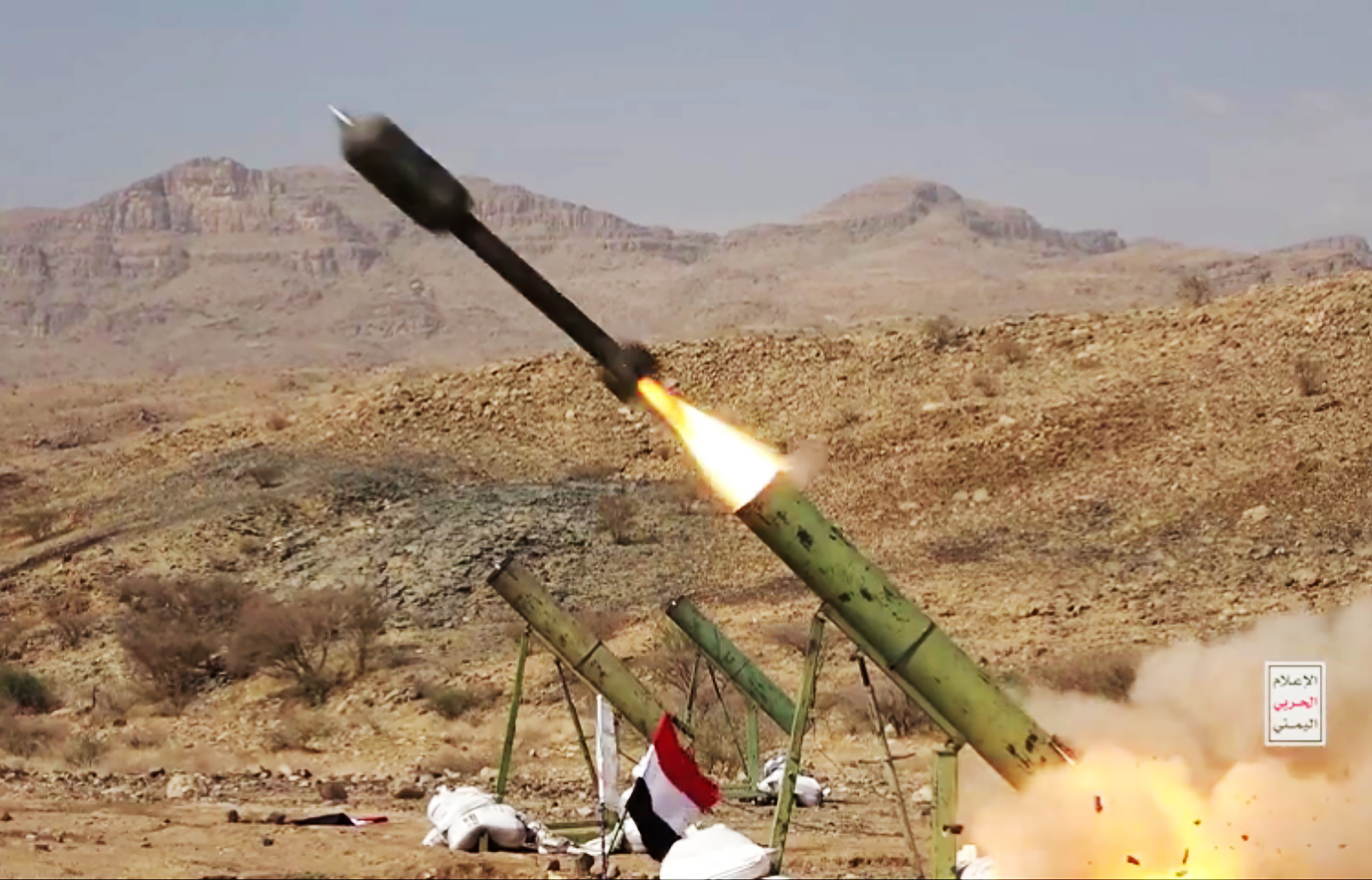Uncommon Knowledge
Newsweek is committed to challenging conventional wisdom and finding connections in the search for common ground.

Houthi rebels have sunk a ship carrying Russian cargo, maritime authorities have said.
The militants fired three anti-ship ballistic missiles at the vessel, severely damaging the engine. The entire crew was evacuated successfully, officials confirmed.
US forces subsequently destroyed three launchers based in Yemen, as well as an unmanned aerial vehicle launched over the Red Sea.
US Central Command (CENTCOM) identified several anti-ship cruise missile launchers in Houthi-controlled regions of Yemen.
The details of the June 12 attack have come to light in a report by the UK Maritime Office, which said there were “indications that the vessel sank” a some while after the impact. No casualties were reported.
A CENTCOM report at the time of the attack said: “An uncrewed Houthi surface vehicle struck the Liberian-flagged, Greek-owned and operated merchant vessel Tutor in the Red Sea. The strike resulted in damage to the engine room.”
The Houthis have frequently targeted vessels in the Red Sea and Gulf of Aden, with this latest attack being part of a broader pattern of hostilities that have intensified since the Israel-Hamas war began.
The rebel movement announced another step-up to their operations at sea in May, when they launched their “fourth stage of escalation”. The move, which was made in support of Gaza, included plans to attack ships in the Mediterranean, Red and Arabian Seas, and the Indian Ocean. It has resulted in attacks on commercial ships from around the world, including Chinese ships, despite a deal to avoid attacking them.
U.S. Central Command and UK forces have repeatedly taken military action to secure merchant and civilian ships in the seas around Yemen, particularly around the Gulf of Aden, a common launching spot for Houthi missiles. Earlier this year in May, the U.S. shot down five Houthi drones over the Red Sea, stating that they posed and “imminent threat” to safety in the region, but despite these efforts, the Houthis remain a influential force, controlling much of Yemen and the capital Sanaa.
A significant portion of the Houthis’ weaponry and support comes from Iran, who have backed the group in its conflict against the Saudi-led coalition in Yemen, which is supported by the U.S. and the UK.
Newsweek contacted representatives of the Greek Government for comment via email.
Do you have a story we should be covering? Do you have any questions about the history of the Houthis? Contact LiveNews@newsweek.com
Newsweek is committed to challenging conventional wisdom and finding connections in the search for common ground.
Newsweek is committed to challenging conventional wisdom and finding connections in the search for common ground.